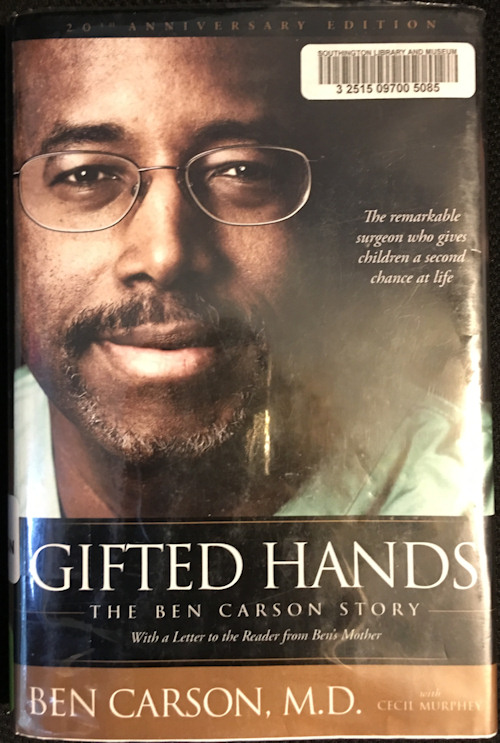5/5 stars
recommended
This book was recommended to me by Dr. Marcus Moss, who extensively referenced it during his HCOP keynote address at UCONN this past April.
What needs to be addressed immediately, is that you really need to ignore any preconceived notions that you may have about Dr. Ben Carson before you read his book. Try to go into it with an open mind; forget that you probably only know him as a talking head on Fox News.
I found this autobiography to be very enjoyable and helpful. It’s a success story. The background of Ben Carson’s life and where he ended up is incredible. It’s a story filled with hope, faith and resilience. I would recommend this autobiography, because gaining insights from someone more advanced then you is extremely helpful for guiding your own ship through life’s waters. Ben Carson was essentially the Michael Jordan of neurosurgery in the late 1980s… His level of achievement is so profound that pretty much wherever you are on the spectrum of “making it”, you will benefit from reading his life journey.
Dr. Ben Carson’s childhood and youth were one of the more moving parts of the book for me. I found the deepness of his faith in God to be really admirable. The guy faced so many challenges early on, but with the help of his Mother’s guidance and with reliance on faith, he managed to conquer every obstacle presented to him.
The guy is totally a role-model and someone to be looked up to. Forget his political opinions and his association with the news media and read his story! You will gain insight that will help you overcome your own unique obstacles.
Technical notes:
I noticed in some areas that it seemed obvious the book was written by more than one person. It was noticeable that some sections were heavily written in tandem between two authors. This isn’t necessarily a bad thing, it’s just something I noticed. Having made this observation, however, it made me suspicious of some of the dialog presented in the book. I think it’s unlikely that all the dialog is one hundred percent accurate. Likely there is some creative license being exercised, especially when you read very detailed childhood conversations.
Also, there were a few areas where it felt like paragraphs were jumping from topic to topic haphazardly. Some chapters felt abstract in that there was content being shoehorned in at the end.
I feel the “breaking” of the fourth wall that happened several times in the reading could have been mitigated if it wasn’t as noticeable that there were multiple authors. These, of course, are just my creative nit-picks (constructive criticism!). You might not find anything I’ve mentioned to be an issue at all. Enjoy.




